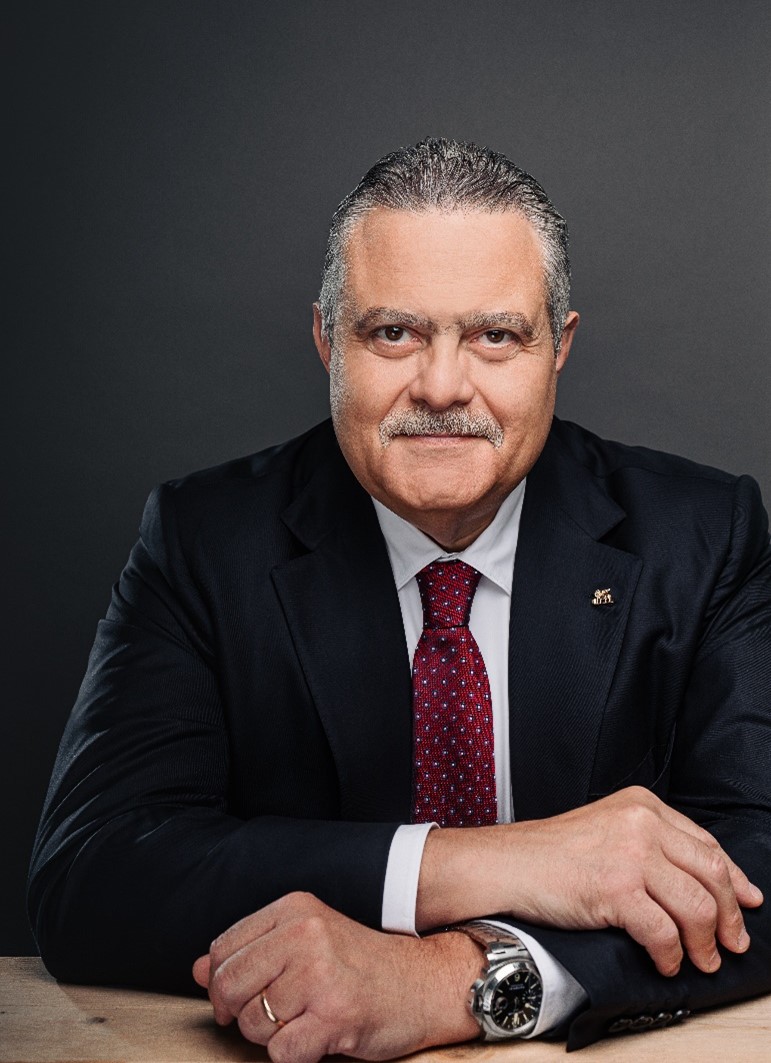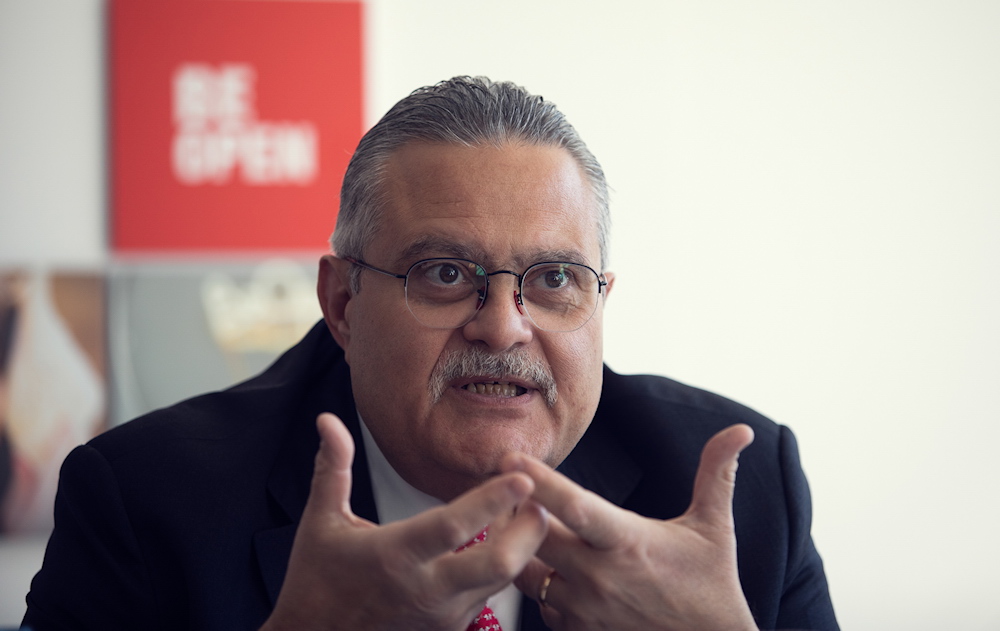Polish magazine Gazeta Bankowa interviews Luciano Cirinà
27 May 2021
Our Austria, CEE & Russia Regional Director and CEO of Generali CEE Holding, Luciano Cirinà in an interview with the Polish financial magazine „Gazeta Bankowa” speaks about the challenges of the insurance markets in the ACEER Region after the Covid-19 pandemic and the strategic role played by Generali.
 Mr. Cirinà, in 2019, the Central and Eastern Europe region, including Austria, was the fourth largest market for Generali Group. Has that changed in 2020? Has the pandemic weakened or strengthened the Generali leadership in the ACEER region?
Mr. Cirinà, in 2019, the Central and Eastern Europe region, including Austria, was the fourth largest market for Generali Group. Has that changed in 2020? Has the pandemic weakened or strengthened the Generali leadership in the ACEER region?
I am proud to say that we have strengthened our position in all countries of Central and Eastern Europe. In our Region, we managed to achieve the second highest operating result in the Group (source: 2020 Group Annual Integrated Report). The 20% share of the Group operating result comes from our Region (€916 mln out of €5,208 bn) and we reached the 10% share of the Group’s volume. Such results cannot be achieved by improvising. Our operations, systems and procedures were ready before the pandemic.
In this Region we outperformed our competitors. I am very proud because we are profitable and we keep growing, despite the difficult situation. I think that all the investments we recently made have borne fruit. We are economically successful, but not at the expense of our customers, whose satisfaction is increasing.
What else has the pandemic changed in the insurance market?
On the one hand, we can see the rise of digital tools, on the other, the fact that customers still need a face-to-face contact. Instead of depersonalization, the pandemic has created a new situation, aiming to combine remote and personal contact. An exclusively online contact channel is not effective. We can grow beyond the average when we combine digital and personal levels. When we talk about life insurance or health insurance, the customers need to know exactly what they are buying. This is in line with our strategy, which is to be a Lifetime partner for the customer. A policy is a piece of paper, but the real product is trust. We need to ensure that clients trust our company, that they know that in five/ten years from now if something happens, we will be there for them and do the job quickly, honestly and professionally. The insurance business is about trust.
In your opinion, will automation in the insurance industry pass with time? What trend has accelerated, what has gone by the wayside, what will permanently remain in the insurance industry, and what will disappear once the pandemic is over?
Digital tools will become increasingly more important to better serve our customers, however technology is not an end in itself. In the insurance market you need to foresee the risk, therefore data analytics are a crucial tool. With data, we can advise better our customers because we have a database of informations about claims or problems over a long period of time. We know the types of risks that may affect the client. The most important thing is to understand the needs of the customer. In the administrative part of the insurance business everything is becoming more automated. With proper automation, the level and quality of customer service is significantly improved. But, as I said, it's not an end in itself. It's all around serving the customer better and improving competitiveness. Every year we have to ask ourselves what we can do better by investing in people, procedures and systems. Ultimately, people competency is more important than systems, because the human, personal touch is fundamental to our business. I was in charge of corporate insurance for many years, and I still have contacts and serve some clients, because in difficult moments it is not selling policies that is the challenge, but advising. You have to be a partner because in the long run that's the most important thing. Acting like a doctor is the key to success.
What is the importance of the Polish market for Generali Group? What are the prospects for Generali Poland? Is our market growing?
Poland is a jewel of Europe. I'm not saying that because the Generali Group is so involved here. Just take a look at the GDP growth rate. It's unbelievable! Poland was the only country in Europe which grew during the crisis caused by the collapse of Lehman Brothers. Last year, economic growth in Poland was more or less zero, while in most other countries in Europe it was negative, and it ranged from minus 7 to minus 15, or even worse. Poland is a country that is developing well. I've been coming to Poland since 1999 fairly regularly, with a little "intermezzo" when I was responsible for operations in Austria. Now when I make the same trip, I see different and better roads than years ago. This is a country where you see that growth. At Generali, we invest in Polish staff and in their professional education. And we will continue to invest. We believe very strongly in our organic growth in this country. Poland is a country which gives us satisfaction. We have great results here, many Poles work in our international structures, support work in other countries, perform regional functions. Poland is a modern market. It is of course dominated by PZU, a company with state capital, and this is a bit of a market specificity. At the same time Polish customers enjoy sophisticated, good insurance products on a European level. So looking back over the years, and also from the customer's point of view, we can see an increase in standards, market size and of course the standard of living in Poland.
What is the greatest strength of the Polish insurance market, as well as the economy?
The strength is the stability and the size of the domestic market. There are not many other neighboring countries, especially in the CEE region, that have such strong foundations, and if they even have them, their size is much, much smaller. Poland has a very strong internal market, with growing demand. One can also say that a good, stabilizing role is played by KNF - a very professional regulator. Poland has a competitive, very well and professionally regulated market where all big insurance groups are present. The competition makes this market work well in terms of prices, which I think are relatively stable, fair for the customers and the insurer. I think this combination of quality, size and regulation makes it by far the most important market in CEE.
This year, Generali Group celebrates its 190th anniversary. How do you celebrate at such a difficult time?
Celebrating a birthday with so many years of history means that this is not the first time we have gone through difficult times ... World War I, World War II, which for us in this region were a tragedy ... Before the war we were market leaders in Czechoslovakia, Hungary, Romania, Bulgaria and overnight, because of nationalization, everything disappeared. Buildings, companies, everything. In 1989 we were the first to come back. We are 190 years old because we managed to survive many shocks. I've been at Generali for 32 years, so I sometimes say it's my company. I came to it as a young man out of college; I'll be retiring in a few years. Over the years, we've shown that profit isn't the only thing that matters. We have been there when customers needed us because we are part of our community. We are still very much committed to people's safety, which is the foundation of our Group. In each of our 13 countries in the Austria CEE and Russia Region, we have created support for children, families and individuals in need through The Human Safety Net program. In doing so, it is not only the money we have invested that is important, but also the hours our employees spend working for those in need. The institution of employee volunteerism has historical roots in our company, dating back as far as one hundred years.
As part of our 190th anniversary celebrations, we introduced Fenice 190, a €3.5 billion investment plan to support the recovery of European economies affected by the Covid-19 crisis, including investments for SMEs and the economy.
How different are insurance markets in the ACEER region? Do you foresee an unification process or not?
The countries of the region, their economies and their insurance markets are very different. The purchasing power of our customers varies significantly, and we have different levels of development and insurance market sophistication. One of the features which shows the difference of the various market is the market portfolio. For example, in Austria the share of motor insurance in the overall Non-Life premium is much lower compared to countries like Romania, Bulgaria and Serbia. The penetration of Life insurance also varies significantly from market to market and is another feature showing the maturity of the market. Another feature which shows the difference is the strength of the broker channel being very strong in countries like Romania, Bulgaria and Poland and less strong in some of the other countries in the region.
Unification of the markets will be a slow process due to historic, economic and insurance specific reasons. Insurance Groups like Generali are contributing significantly to this process by sharing best practices and expertise in all the markets. We are contributing to this unification also through our strategy. For example, our Life-time partner transformation will take a different shape in each market, but the ultimate goal is the same, to care for our clients through all their phases of life. Despite our efforts to achieve certain level of unification we also need to be flexible and customize our products and services according to the local specificities mainly driven by legislation, customer behaviour and expectations.
The European Union has launched a financial plan to support the countries´ economic recovery after Covid-19 pandemic. How, in your opinion, this Fund will impact countries of Central and Eastern Europe, including Poland? Will it have a major impact on the region's financial markets, including insurance markets?
The CEE region accounts for around 11% of the 27-member European Union’s gross domestic product but has been provisionally allocated 187 billion euros, or 25%, of the ‘Next Generation EU’ plan’s money. Scaled as share of GDP, Croatia and Bulgaria would get the biggest boost. Coronavirus recovery fund for EU member states implies an unexpectedly generous package for countries in central and eastern Europe that could significantly benefit their economies. This is a positive news for the financial markets. Central and Eastern European economies outperformed after the global financial crisis a decade ago. Taking into account the increased funding, they should be able to consistently outgrow their Western European neighbors.

You can also read the interview in Polish.


